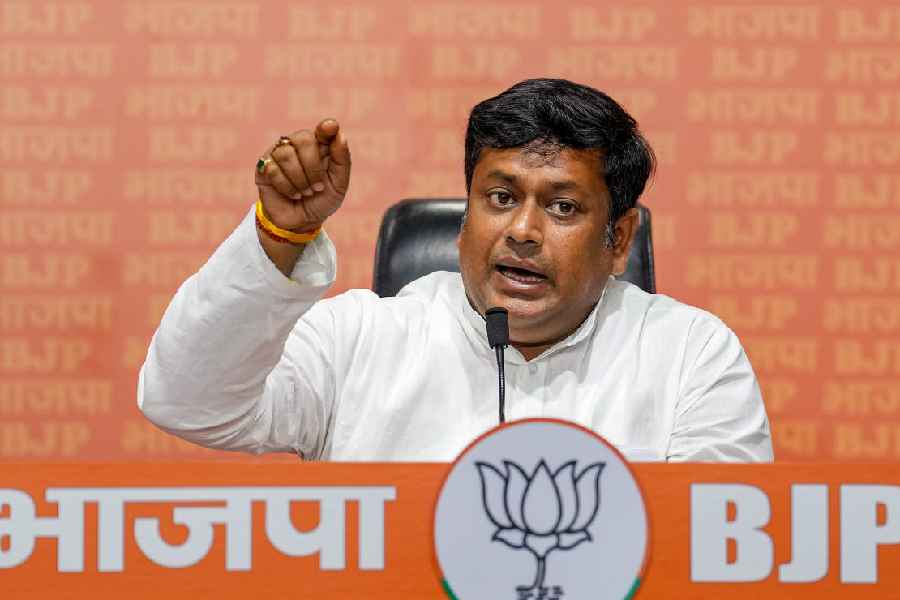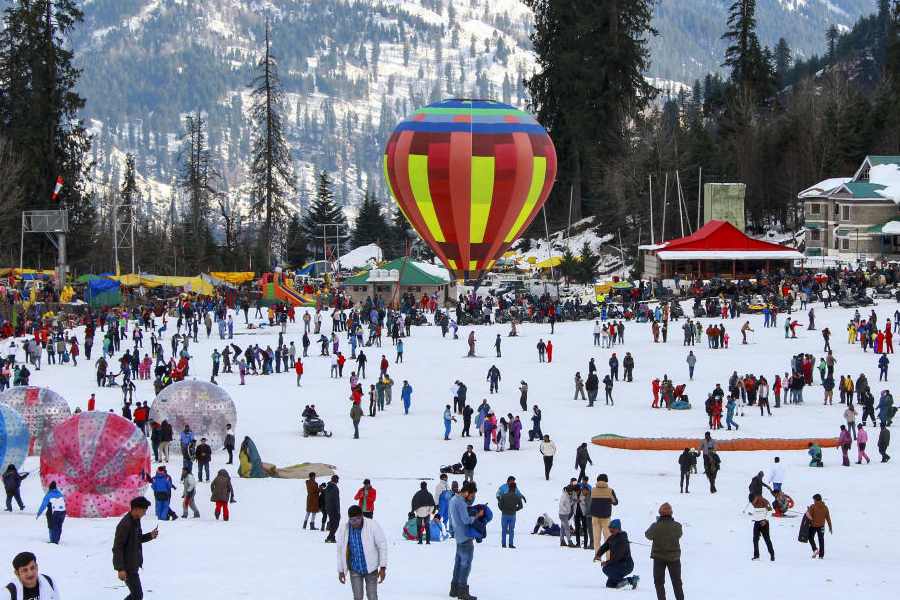Resolution regret
Sir — As we approach 2025, I find myself reflecting on the age-old tradition of New Year’s resolutions, a ritual as old as the Babylonians themselves. It is said that the first resolution was broken even before the ink dried, probably because someone’s ‘no more feasting’ pledge was immediately sabotaged by a festive banquet. With less than 10% of resolutions surviving the year, I am starting to wonder: should we even bother? Maybe this year, my resolution will be to not make a resolution. It is the one promise I’m confident I can keep — at least until January 2. Here is to lofty goals and even loftier excuses.
Sushil Kumar,
Patna
Delinked plan
Sir — The Ken-Betwa River Linking Project, while promising increased irrigation and power generation, poses severe threats to the Panna National Park and Tiger Reserve. Submerging 98 square kilometre of the park and cutting down millions of trees will destroy crucial habitats. This could reverse the successful tiger reintroduction efforts in the park by limiting their mating area. The approval of such a project within a national park sets a dangerous precedent for future conservation efforts. It is vital that environmental considerations take precedence over development, ensuring the protection of biodiversity for future generations.
Sanjit Ghatak,
South 24 Parganas
Sir — Over 6,600 families will be displaced from their homes in Chhatarpur and Panna districts owing to the Ken-Betwa project, which is a grave concern for the local communities. Many affected families are voicing dissatisfaction with the compensation and rehabilitation process, citing it as inadequate. This forced displacement, combined with the destruction of agricultural land, will lead to socio-economic hardships. Before proceeding with such projects, the government must address these issues and ensure that the displaced people receive fair compensation and adequate support for resettlement.
Arun Gupta,
Calcutta
Sir — The Ken-Betwa River Linking Project raises serious questions about its hydrological feasibility. Studies suggest that moving large volumes of water could lead to a decrease in rainfall, with potential impacts on regional climate patterns. This could affect both the environment and agriculture in the long term. It is crucial that comprehensive hydrological data be made public for thorough review before committing to such a large-scale and potentially harmful project.
Alok Ganguly,
Nadia
Sir — While the Ken-Betwa River Linking Project promises significant benefits in terms of irrigation, drinking water, and energy, it is important to balance these goals with environmental sustainability. The destruction of forests and wildlife habitats for the sake of development should not come at the cost of irreversible ecological damage. The government must explore alternative solutions that do not compromise our national parks and wildlife reserves. True development should integrate environmental protection as an essential component.
Prasun Kumar Dutta,
West Midnapore
Dress dilemma
Sir — The disqualification of Magnus Carlsen for wearing jeans at the World Rapid and Blitz Chess Championship raises a few eyebrows. While one understands that formal attire is meant to uphold the tournament’s decorum, one must ask: is this really necessary in the world of intellectual sports? Chess tournaments are not fashion shows. The focus should be on the game, not the garments. Of course, respect for the event’s tradition is important, but when you have one of the greatest chess players in history being penalised for something so trivial, it feels like misplaced priorities.
Sonali Singh,
New Delhi
Sir — Magnus Carlsen’s disqualification for wearing jeans at the World Rapid and Blitz Chess Championship in New York highlights the ongoing debate over dress codes in chess. While I agree that a dress code helps maintain professionalism and respect for the event, there must be room for practicality. Chess players are there to compete, not to showcase designer wardrobes. Forcing them to wear formal suits may distract from their focus on the game, and penalising a player like Carlsen for minor infractions is unreasonable. If players are comfortable, they can perform better. Let us save the penalties for illegal moves, not jeans.
Kiran Agarwal,
Calcutta
Unpleasant warmth
Sir — Well into the Bengali month of Poush, winter remains elusive in Calcutta. Despite the festive warmth brought by Christmas celebrations, the much-awaited chill of winter is still missing. The average minimum temperature remains around 17-18°Celsius, which is far from the expected wintery feel Calcuttans cherish. This unusually warm weather has left many disappointed as the crisp mornings and cool evenings so typical of Calcutta’s winter are nowhere to be found. It is disheartening to see the season fail to live up to its usual charm, affecting both the atmosphere and daily comfort.
Manjushree Sinha,
Calcutta
Nature’s remedy
Sir — The recent study revealing sea otters’ role in controlling the green crab invasion at Elkhorn Slough in California is a fascinating example of nature’s resilience. Once on the brink of extinction, sea otters are now helping to restore balance in the West Coast ecosystem by devouring thousands of these invasive crabs, which have caused significant harm to local habitats. This natural solution highlights the importance of species recovery in preserving biodiversity. The success of sea otters shows that, when given the chance, ecosystems can regenerate on their own.
P.V. Prakash,
Mumbai











